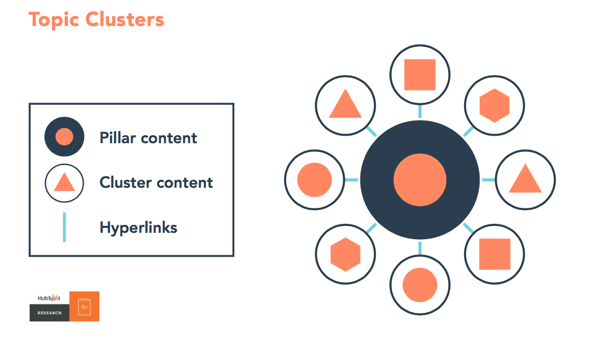Search engines constantly revise how they index and display websites so they can improve user experiences. Each time popular search engines change their algorithms, SEO experts have to find inventive ways to keep their pages at the top of search engine page results.
Some of the latest search engine updates have forced companies to adopt an SEO content strategy called “topic clusters.” Once you know more about how search engines have changed, you’ll understand why topic clusters can help boost your search results and inbound traffic.
Search Engines Have Gotten Better at Understanding Humans
Early search engines didn’t give users much flexibility. If you searched for “restaurants near me,” the search engines would send you to pages that contained the phrase “restaurants near me.”
Obviously, human beings don’t think or communicate in such a literal way.
Google's Hummingbird update made the search engine more intuitive so it can better understand what users want to find. Google could use context to determine what types of pages and information you wanted to find. If you searched for “restaurants near me,” Google would give you the names of restaurants in your vicinity.
Over the last few years, search engines have gotten even better at understanding human communication. As a result, SEO managers need to rethink how they optimize their sites.
Better Results From the Topic Cluster SEO Strategy
As search engines learned how to understand people better, topics became more important than keywords. You still need to include popular keywords to grab the attention of web crawlers, but you also need to think about organizing pages in a way that helps search engines understand how topics on your site relate to each other.
Topic clustering can boost your search engine visibility by grouping content by topics. It’s a different approach from the keyword-focused schemes that SEO managers once used, but it actually makes a lot of sense because it aligns more closely with the way that people think.
Why Keyword Strategies Fail
When you concentrate on keyword SEO strategies, you have to write hundreds, if not thousands, of pages that use a specific keyword’s long-tail variations. You can’t rely on one blog post that optimizes a keyword phrase like “cake shop in Hong Kong” because you might miss all of the searches for related phrases such as:
-
Desserts in Hong Kong
-
Hong Kong cakes
-
Hong Kong sweet shops
Even if you had the time and money to write content for every possible keyword variation, your site would become too messy for web crawlers and people to navigate.
Topic clusters help solve this problem by taking a smarter approach to website architecture.
The Architecture of Topic Clusters
When making a topic cluster, you create a main article that acts as the cluster’s pillar. You can have any amount of cluster content hyperlinked to the pillar content. All of the cluster content points back to the pillar.

Image Credit: Hubspot
You can imagine topic clusters are like wheels. The pillar content goes in the middle of the wheel, where you would find the hub. The cluster content goes in the circle that forms the wheel. Hyperlinks act as spokes that connect the wheel to the hub.
The architecture of topic clusters makes it easy for you to organize your website’s content in a way that humans and search engines understand. Since all of the content relates to a single topic, you can keep all of your pages orderly.
Search engines prefer this design because it helps them locate useful information that people want to see. Web developers appreciate topic clusters because the architecture increases the visibility of multiple pages. When one article in a cluster does well, it elevates the visibility of the other articles too.
Staying ahead of SEO trends has always been a challenge. With topic clusters, though, you can make content that appeals to people and search engines. With that combination of benefits, you can’t go wrong.
Want to learn more about Inbound Marketing? Check out our Ultimate Guide to Inbound Marketing
Any questions? Please feel free to contact us for a free consultation meeting.

